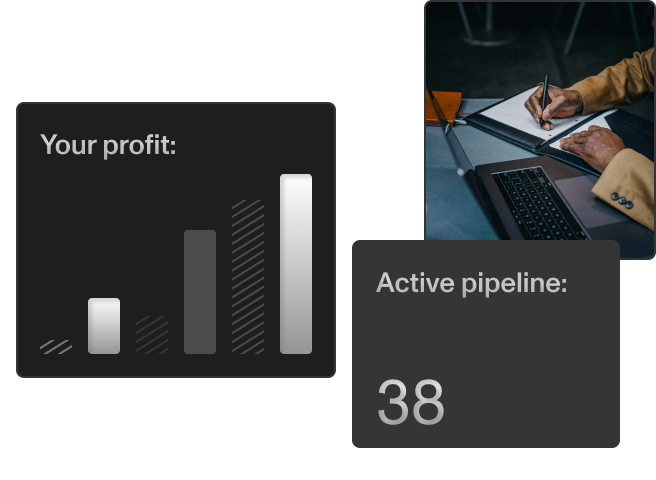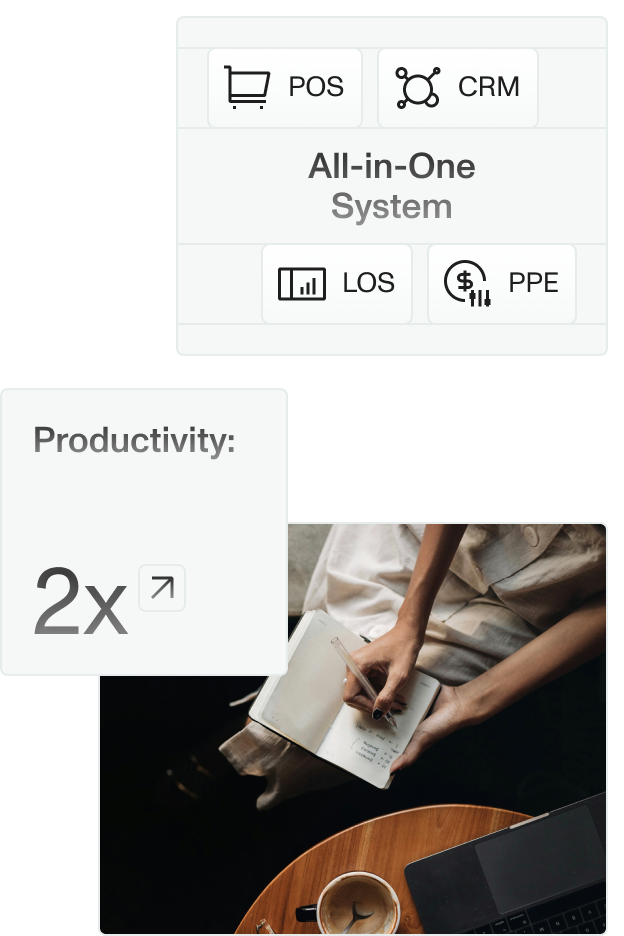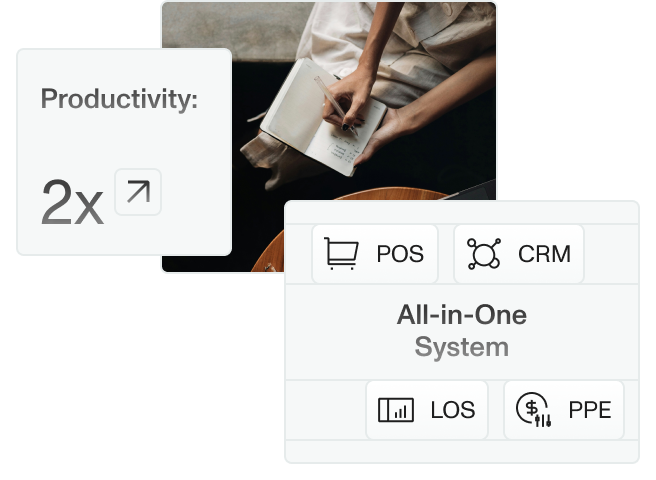Security in mortgage origination is a growing concern. Between October 2023 and January 2024, four large mortgage or title firms were successfully attacked by cybercriminals. These attacks exposed highly sensitive customer data such as social security numbers and home addresses, demonstrating the imperative for robust data security practices in the mortgage industry.
Our detailed guide outlines the threats mortgage lenders face and best practices for protecting customer data. We also cover compliance regulations for mortgage originators, such as the Gramm-Leach-Bliley Act (GLBA) and the General Data Protection Regulation (GDPR).
Let’s get started.
Understanding Data Security Risks in Mortgage Origination Software
Mortgage origination involves troves of sensitive personal data, so the industry is a prime target for criminals. The risks are manifold—from data breaches and insecure authentication to a broken encryption chain.
Data Breaches
A data breach exposes personally identifiable information and is especially troubling for customers because it leads to identity theft and fraud.
Insecure Authentication
Attackers can exploit weak authentication processes to gain unauthorized access to your systems. Single-factor authentication, such as a password, quickly becomes insufficient unless tied to a password randomizer that constantly updates. Multi-factor authentication (MFA) strategies might be a better option because they come with an additional layer of protection.
Inadequate Encryption
Without encryption, data can be intercepted and read. That’s why it’s vital to encrypt data at every stage—whether at rest, in transit, or use. Encryption failure is often the precursor to a data breach.
Insufficient Access Controls
Fine-tuning access controls ensures that only authorized personnel can handle sensitive data, reducing the risk of malicious and unintentional data leaks.
Outdated Software and Security Patches
Much of the mortgage industry still utilizes legacy systems. These systems are vulnerable to exploitation, and that becomes truer the longer they go without updates. Even originators operating the latest software need to pay attention to updates. Regular patching is key to safeguarding digital mortgage solutions from known problems.
Implementing Encryption and Access Controls
Encryption is a non-negotiable feature in mortgage origination software. Poor encryption leaves you vulnerable to data breaches and doesn’t limit access to sensitive data. Unauthorized use and sharing become common in that scenario.
By contrast, effective encryption renders data unreadable to unauthorized persons. You can safely transmit and store data and protect your datasets from thieves’ eyes. Data security and privacy concerns are handled primarily by implementing encryption and access control.
To encrypt data, follow this process:
1. Identify what needs to be encrypted. Align on what counts as sensitive customer data. All sensitive data should be encrypted.
2. Choose an encryption method. Various encryption methods, such as AES, RSA, and SHA, are available.
3. Select a key management system. For added security, choose a key management system that regularly rotates keys and limits access to authorized personnel.
4. Implement access controls and limit the number of people who can decrypt and access encrypted data.
Regular Security Audits and Updates
Regular security audits keep you aware of potential vulnerabilities. You can then use this knowledge to protect your business before hackers launch an attack. Your security audits must be regular and thorough to be of value, however. An expert on your IT team should review your infrastructure, security policies, and typical procedures.
Are your loan officers, for instance, putting data at risk by sharing USB drives? Are you storing physical copies of sensitive documents appropriately? Your IT security team can pinpoint lapses and suggest a remedy.
It’s also essential to stay up-to-date with security patches. These updates often include critical fixes to known vulnerabilities.
Staying on top of security becomes easier if you create a schedule for conducting security audits and implementing necessary updates. This could include monthly or quarterly audits, with more immediate reviews in case of a major security breach or vulnerability.
Ensuring Regulatory Compliance
Mortgage data security solutions also need to comply with regulatory standards. Non-compliance can lead to disruptive fines and damage to your reputation.
Relevant regulations include:
1. GDPR: The General Data Protection Regulation applies to any company that collects data from European Union citizens.
2. GLBA: The Gramm–Leach–Bliley Act requires financial institutions, including mortgage originators, to protect consumer information and be upfront about their data-sharing policies.
3. CCPA: The California Consumer Privacy Act provides California residents with the right to know, delete, and opt out of the sale of their personal information without facing retaliatory conduct.
You can stay informed about regulatory changes by regularly checking government websites and visiting respected industry blogs like Sonar’s.
Leveraging Advanced Technologies for Enhanced Security
Recent advancements in technology are changing mortgage security. For example, AI and machine learning (ML) can significantly enhance data security capabilities. These technologies detect anomalies in data patterns, identify potential threats, and streamline security processes through automation.
Incorporating AI or ML tools into your operations could have a transformative effect. The same is true of the next significant advancement. Staying informed of the latest mortgage technology is mandatory to stay ahead of your competition.
Originators and loan officers who’ve adopted AI and ML can:
- Leverage intelligent automation to pre-fill data fields and flag risky information.
- Use advanced analytics to detect and prevent fraud.
- Use predictive analytics to assess risk profiles.
- Prevent data breaches with sophisticated encryption methods and real-time monitoring.
Potential Concerns
While the benefits of using AI in data security are apparent, addressing concerns is worthwhile. For instance, AI algorithms can be biased and create ethical issues, particularly in the case of loan decisions. You’ll need to monitor any AI-powered systems for fairness continuously.
Additionally, some vulnerabilities may be unique to AI.
Conclusion
For mortgage professionals, data security is a top priority. The consequences of a data breach or non-compliance with regulations can be severe and long-lasting. Staying up-to-date with advanced security measures and regularly conducting security audits is crucial to keep your business safe. Leveraging advanced technologies like AI and ML can also greatly enhance mortgage security capabilities.
That’s why Sonar’s platform utilizes cutting-edge encryption and access controls, providing the highest levels of data security. With regular security updates and audits, we ensure regulatory compliance.
Experience seamless data security with Sonar’s mortgage experience platform.







